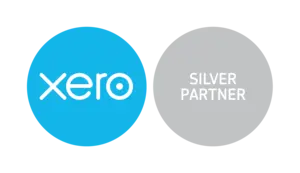The Future of Accounting is in the Cloud
There was a time when bookkeeping meant stacks of paper, endless hours of data entry, and the constant fear of losing an important invoice. But times have changed.
Accounting has entered the digital age, bringing efficiency, accessibility, and real-time insights that are revolutionising how businesses manage their finances.
Cloud-based finance and software solutions aren’t just a passing trend; they’re transforming how businesses manage their finances, improve cash flow, and make smarter decisions.
Whether you’re a small business owner juggling multiple responsibilities or a growing company looking to streamline operations, cloud accounting and software solutions offer the flexibility, efficiency, and real-time insights you need.
They also increasingly included artificial intelligence (AI) elements which augment and enhance what the user is able to do.
So, what makes cloud-based finance and software solutions a game changer? Let’s dive in.
What Are Cloud-Based Finance Solutions?
At its core, cloud-based accounting software allows businesses to manage their financials online, rather than being tied to a single desktop or paper-based system. It’s like having an accounting department in your pocket, accessible at any time and place.
Key Features of Cloud-Based Accounting Software:
- Real-time financial data: Instantly access your company’s financial health at any moment.
- Automation of manual tasks: Say goodbye to data entry automatic bank feeds, invoicing, and reconciliations save time.
- Scalability: Whether you’re a freelancer or a multi-location business, cloud solutions grow with you.
- Seamless integrations: Sync with payment processors, payroll systems, and CRM software.
- Enhanced security: Cloud providers invest heavily in encryption, backups, and compliance, keeping your data safer than a local hard drive.
Why Cloud Accounting is a Game Changer for Businesses
1. Work From Anywhere
Imagine completing your accounts while sipping coffee at your favourite café or reviewing cash flow reports from your phone before a client meeting. Cloud accounting lets you do just that.
- No need to be tied to an office or a specific device.
- Team members and accountants can access the same data remotely, reducing delays and improving collaboration.
- Mobile apps make it easy to check reports, send invoices, and approve expenses on the go.
2. Better Decision-Making with Real-Time Data
In business, timing is everything. Making financial decisions based on outdated information is like driving while looking in the rearview mirror.
- Cloud accounting gives you up-to-date financial insights.
- Automatic bank feeds ensure transactions are recorded in real-time.
- Track revenue, expenses, and profitability instantly, allowing for proactive decision-making.
3. Time-Saving Automation
Business owners wear many hats. The last thing you need is to spend hours manually entering data or chasing unpaid invoices.
- Automate recurring invoices and payment reminders to get paid faster.
- Smart bank feeds match transactions automatically, reducing reconciliation time.
- AI-powered expense categorization means fewer manual adjustments.
4. Cost Efficiency: Save Money in the Long Run
While cloud accounting software has a monthly cost, it saves money in several ways:
- No need for expensive IT infrastructure or servers.
- Reduces human errors that could lead to costly financial mistakes.
- Cuts down on administrative hours spent on data entry and reconciliation.
5. Seamless Compliance & Tax Efficiency
Staying on top of tax obligations and compliance regulations can be overwhelming. Cloud-based solutions make it easier.
- HMRC-approved Making Tax Digital (MTD) software ensures your VAT filings are compliant.
- Automated tax calculations reduce errors and help avoid penalties.
- Audit trails keep a clear record of all transactions, simplifying end-of-year reporting.
Cloud-Based Finance: Real-World Impact
Let’s take a real-world example: A UK-based e-commerce business was struggling with late invoice payments and cash flow forecasting. After switching to cloud accounting, they:
- Reduced late payments by 40% by automating reminders.
- Saved 10 hours per month on manual reconciliation tasks.
- Improved cash flow visibility, allowing them to reinvest in stock and growth.
The number of 3rd party e-commerce apps and connectors, makes integration with the financial system and accounting processes a breeze.
How to Choose the Right Cloud Accounting Software
Not all cloud-based accounting solutions are created equal. Here’s what to look for:
- Ease of use: The best software is intuitive, even for non-accountants.
- Scalability: Ensure it can grow with your business.
- Integration options: Check compatibility with your existing tools (e.g., payment platforms, payroll, CRM).
- Security: Look for multi-factor authentication and encrypted backups.
- Customer support: Reliable support can make a world of difference when you need assistance. When things go wrong, they can go really wrong, so the importance of this area should not be underestimated.
Popular Cloud Accounting Software Options for UK Businesses:
- Xero – Ideal for small to medium-sized businesses with powerful automation features.
- Sage Business Cloud – Great for UK compliance and MTD VAT submissions.
The Future of Finance is Cloud-Based – Are You Ready?
Switching to cloud-based finance solutions isn’t just about keeping up with technology, it’s about working smarter, saving time, and having better control over your finances.
At RedBrick, we help businesses like yours transition smoothly to cloud accounting, and connect the right apps, ensuring you have the right tools to make the financial management of your business effortless.
For a better home for your business finances, email: hello@redbrickaccounting.com




